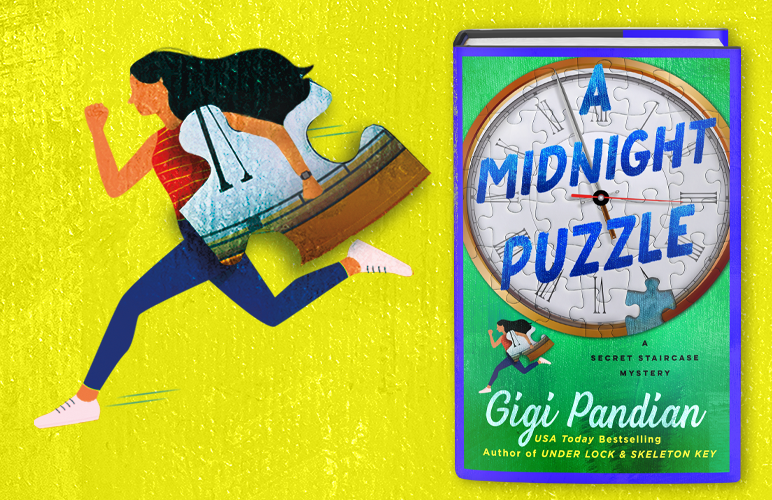Last week I received edits for Artifact back from my fantastic editor, Ramona DeFelice Long.
When I made the decision to publish my mystery series myself, I knew that working with an editor was one step of the process that was essential not to skip.
In spite of years of learning the craft of writing, being blessed with an amazing group of critique readers, and having a brilliant agent who took me through two substantial rounds of edits on my first manuscript — none of those experiences was the same as having an editor.
Learning the craft of writing — through writing workshops, mystery author mentors, and time spent writing — leads to proficient writing that doesn't make a reader throw your book across the room. Having amazing critique readers helps you make sure you're tell a compelling story in a way that makes readers want to keep turning pages. And having a brilliant agent — one who's willing to take a risk on a book she loves because she sees potential — can move your book to the level where publishers take notice. Each is an incredibly important step in the process. But none of them replaces the last key step of having a professional editor review your work.
If I'd signed a contract with a traditional publishing house, I would have worked with the editor who convinced the publisher to buy my book. I was lucky that I'd already worked with an editor who edited two of my mystery short stories accepted into Sisters in Crime Guppies Chapter anthologies. I loved the edits Ramona suggested for my short stories. She really got what I was going for. That was important to me. It was an easy decision to turn to her when I needed to hire an editor myself.
Here's an overview of the type of edits I received for Artifact:
When I made the decision to publish my mystery series myself, I knew that working with an editor was one step of the process that was essential not to skip.
In spite of years of learning the craft of writing, being blessed with an amazing group of critique readers, and having a brilliant agent who took me through two substantial rounds of edits on my first manuscript — none of those experiences was the same as having an editor.
Learning the craft of writing — through writing workshops, mystery author mentors, and time spent writing — leads to proficient writing that doesn't make a reader throw your book across the room. Having amazing critique readers helps you make sure you're tell a compelling story in a way that makes readers want to keep turning pages. And having a brilliant agent — one who's willing to take a risk on a book she loves because she sees potential — can move your book to the level where publishers take notice. Each is an incredibly important step in the process. But none of them replaces the last key step of having a professional editor review your work.
If I'd signed a contract with a traditional publishing house, I would have worked with the editor who convinced the publisher to buy my book. I was lucky that I'd already worked with an editor who edited two of my mystery short stories accepted into Sisters in Crime Guppies Chapter anthologies. I loved the edits Ramona suggested for my short stories. She really got what I was going for. That was important to me. It was an easy decision to turn to her when I needed to hire an editor myself.
Here's an overview of the type of edits I received for Artifact:
- Basic edits / aka proofreading. Ramona caught a few remaining typos and awkward phrases. I will never understand how typos still slip through even though I and several other people read the full manuscript many times! It's distracting an unprofessional to spot more than the rarest of errors in published books, and I never would have caught these myself.
- The next level of edits. It turns out that while I don't have a crutch word I use over and over again, I have crutch phrases. Neither I nor my critique readers had noticed this, which I hope means my readers were so caught up in the story that they failed to notice because they were reading so quickly to find out what happened next. Ramona pointed these out by highlighting the offending phrases. Once I saw them, I realized how distracting they could be.
- Deep edits. Lastly, the structural assessment was more than I had hoped for. There were two key areas where my manuscript was *good enough,* but she showed me how these sections could be *great.* And for that, I am forever thankful, and I know I made the right decision to work Ramona.




